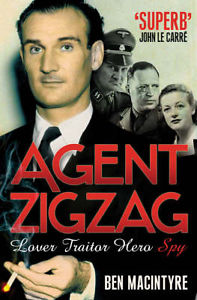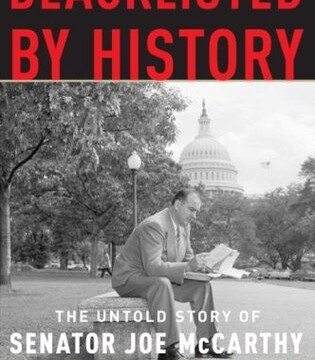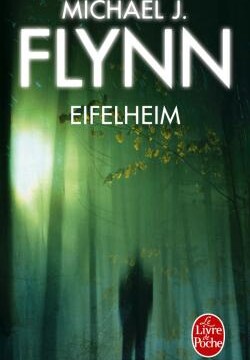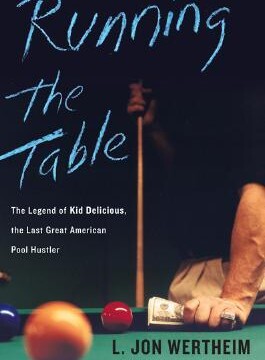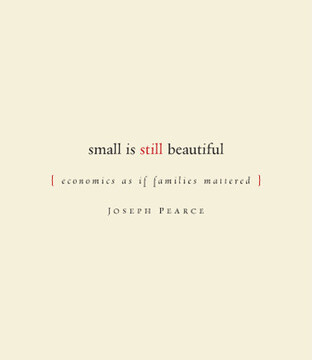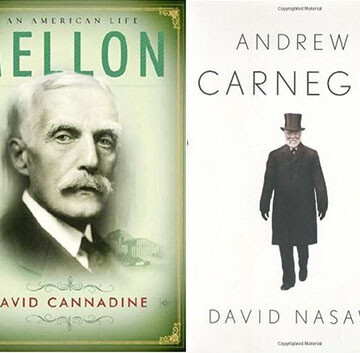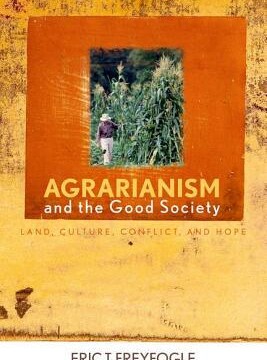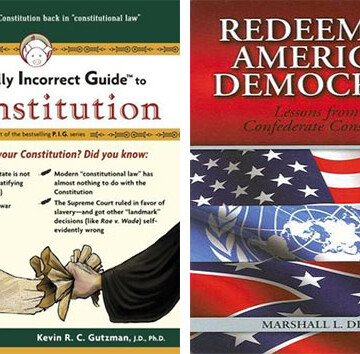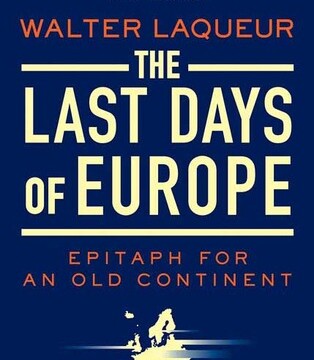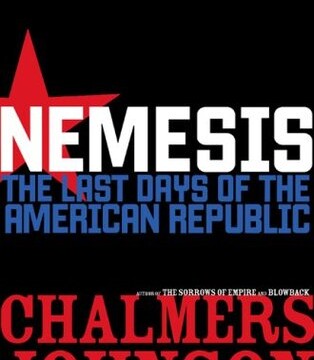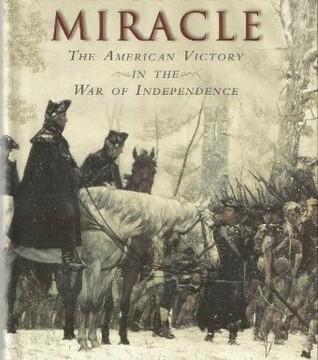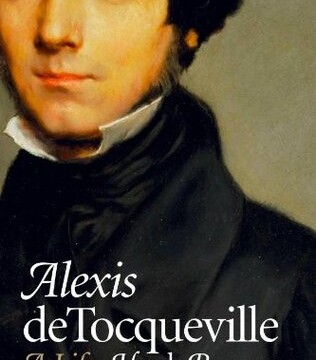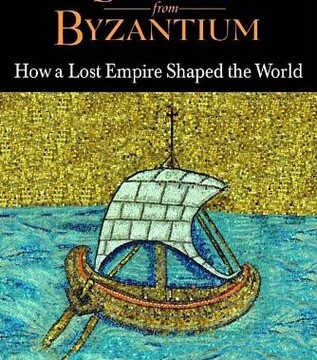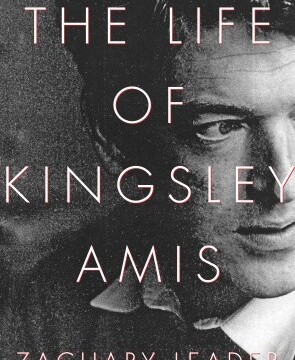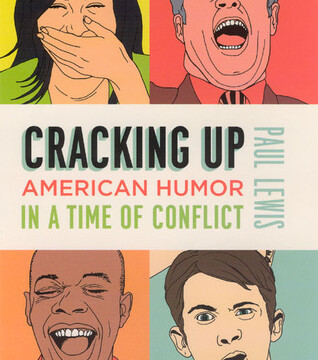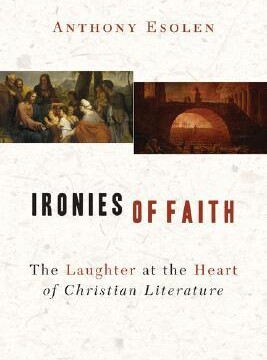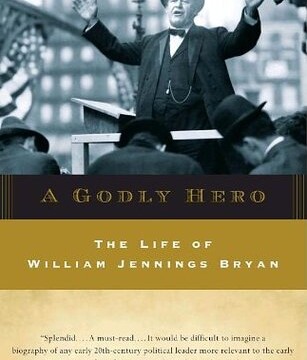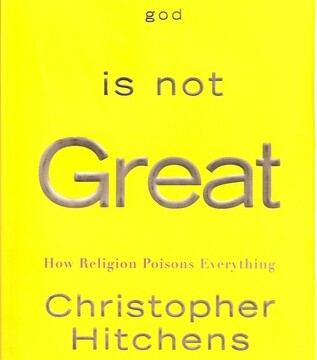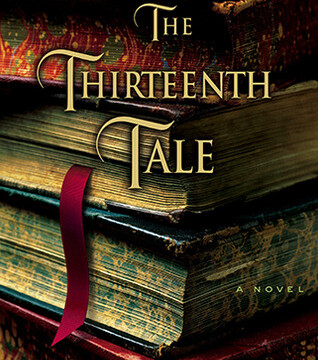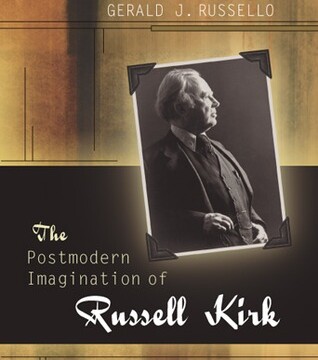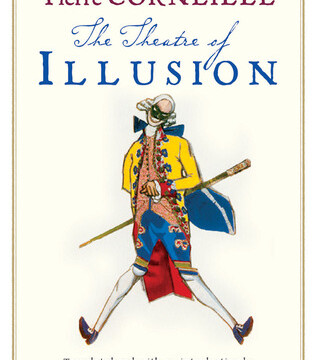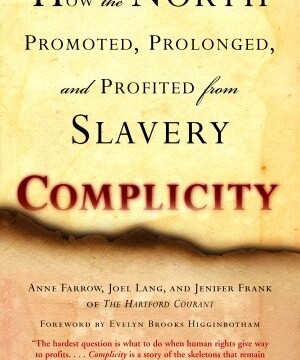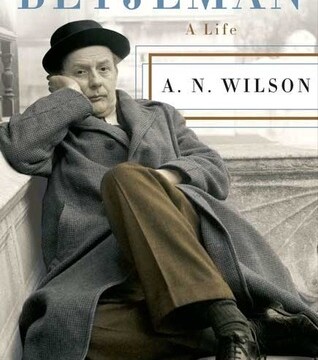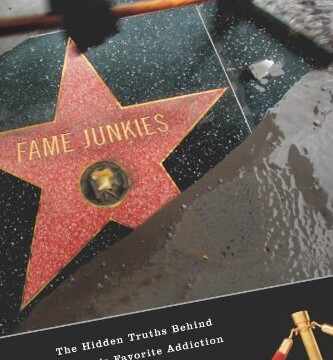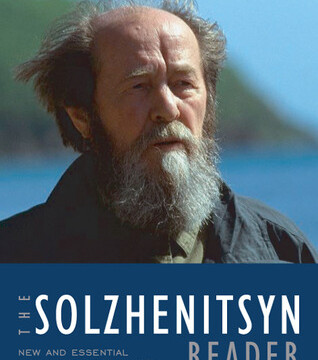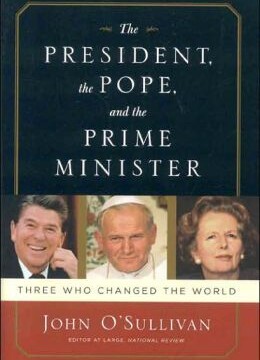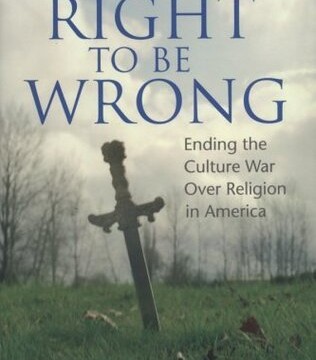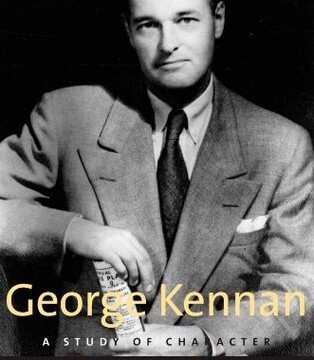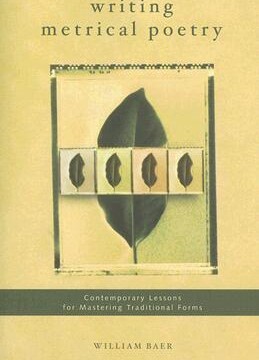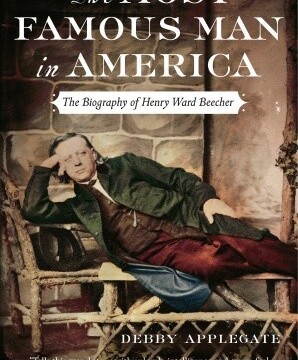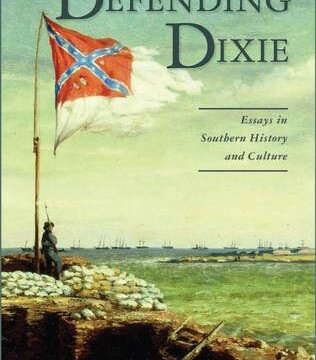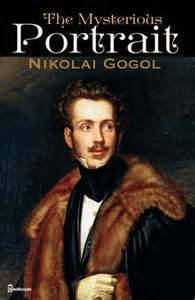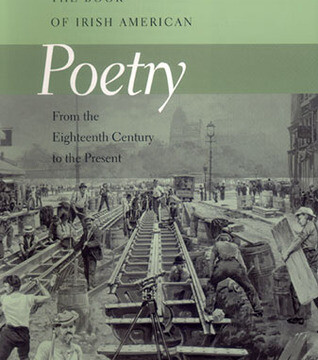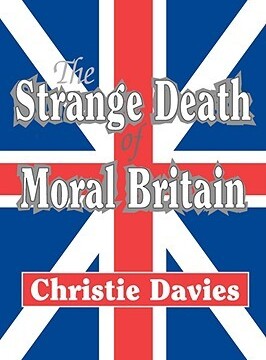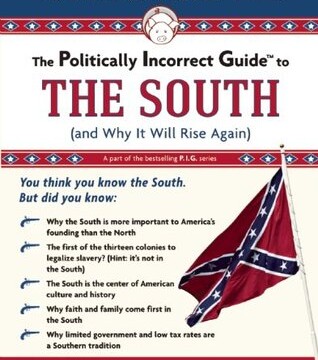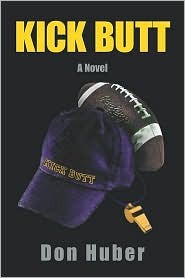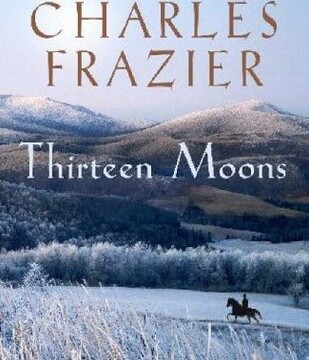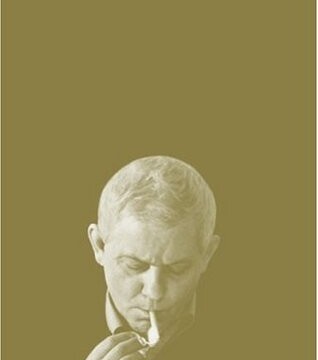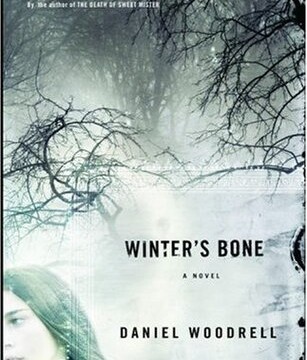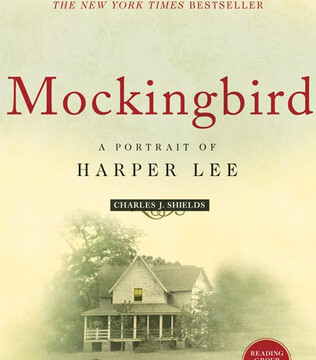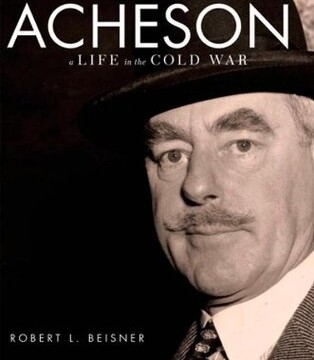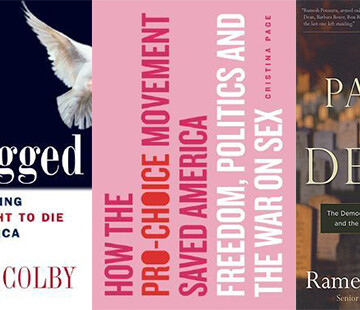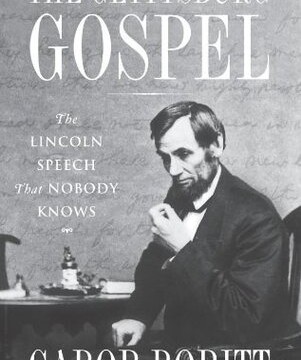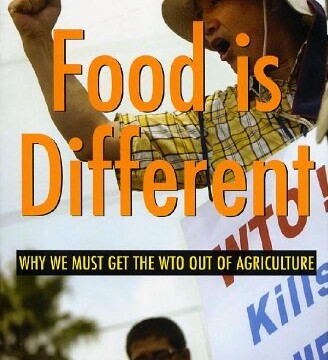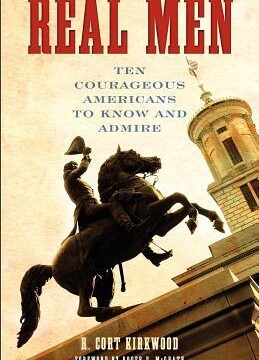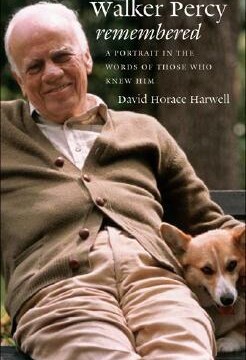It is almost inevitable that a reader of my interests and disposition should slightly miss the point of this book, described in a Daily Express blurb as “a good spy thriller,” and that is precisely what I propose to do. Spy thrillers are plentiful; they are summer reading at its Sardinian beachiest. To review one...
Category: Reviews
He Got Them First
“Traitors’ words ne’er yet hurt honest cause.” —Scottish Proverb The destruction of Sen. Joe McCarthy, says M. Stanton Evans, was never about what he did: The real issue has always been the larger question of what happened to America—and the world—at the midpoint of the twentieth century, what it meant, and who was responsible for...
Atheism
Strange as it may sound, one of the best antidotes to the angry atheism of such disaffected Britons as Christopher Hitchens and Richard Dawkins is the recent science-fiction novel Eifelheim by Michael Flynn. The book, dedicated to Jean Buridan—the Paris scholastic who described inertia, a scientific concept unknown to the ancients, in the 14th century—focuses...
No No Gambling
Was it a famed pre-Socratic philosopher or was it Mae West who declared that the way down and the way up are the same? Whoever said it first sure got that right. And if you don’t believe it, then have I got a book for you. I mean, what do you do when they pick...
Big Is Still Ahead
This odd little book has a point to make—the title says it all—but it is a point that was made 34 years ago in a book that sold millions of copies and became famous around the world. Exactly why it needs to be restated isn’t clear, and Joseph Pearce never bothers to explain it. It...
Two American Lives
“Whatsoever thy hand findeth to do, do it with thy might.” —Ecclesiastes 9:10 The Gilded Age still exerts a strange pull on the American imagination. It was a time of larger-than-life people and larger-than-life business entities. It featured conspicuous consumption—including palatial mansions, yachts, international travel, and international scandal—that seems almost to exceed anything we have...
A New Agrarian Primer
Most people think agrarianism is synonymous with farming. As a result, agrarian thinkers spend much of their time defending what they really mean—namely, that agrarianism is not so much about agriculture as it is an integrated life in which farming plays a central or at least respectable role. Eric Freyfogle wisely avoids this pitfall and...
The Strange Case of the Missing Constitution
Some acute scholar of future times, should there ever be such, will perhaps ponder over the very strange career of the United States Constitution—how it came, without changing a word, to be understood almost universally to mean things it did not mean and to be used for purposes other than, and sometimes the opposite of,...
Epicene Europa
“Roll up the map of Europe; it will not be wanted these ten years.” —William Pitt (1806) “Nothing,” goes the Johnsonian cliché, “concentrates a man’s mind more wonderfully than the prospect of being hanged.” This very natural reaction may explain why a whole raft of intellectuals, journalists, and even politicians, none of whom was previously...
Horsemen, Draw Nigh!
The title of Chalmers Johnson’s latest book, the last in his trilogy of empire, invokes the Greek goddess of retribution. He named the first book in his trilogy after the CIA term for the harmful unintended consequences that sometimes result from the agency’s covert policies. “Blowback,” he wrote, “is but another way of saying that...
The Skin of Their Teeth
John Ferling, professor emeritus from the University of West Georgia and author of several other books on politics and political figures in the Revolutionary and New Nation eras, has produced a work of mature scholarship that reflects a lifetime of study and lecturing and offers a highly readable and comprehensive military history of our War...
A Democrat of the Head
“A perfect democracy is the most shameless thing in the world.” —Edmund Burke Hugh Brogan has lived a long time—since the late 50’s, when he was reading history at St. John’s College, Cambridge—with the subject of this biography. Across the decades, though his affection for Alexis de Tocqueville has not lessened, his skepticism in regard...
An Image of the East
It is a cliché among Byzantinists that too few people in the world, especially in the West, know anything about Byzantium, so there is no doubt that more works of “popular synthesis” that make this Christian successor to the Roman Empire in the East accessible to a broader audience are greatly needed. Colin Wells sets...
Why Don’t You Just Shoot Me and Get It Over With?
The Life of Kingsley Amis by Zachary Leader New York: Pantheon Books; 996 pp., $39.95 No, I’m not sorry. I’m not. Really. And I’m not sorry about a lot of things that we won’t go into, such as believing in the 1950’s that “we” were against communism, and such as ever believing that higher education...
Southwest Illuminations
Range of Light, Catharine Savage Brosman’s sixth full-length collection of poetry, returns to the Southwest landscapes of the poet’s youth. It is impressive that Brosman has retained such a strong connection to her native region after an adulthood spent in New Orleans and a long career as teacher and scholar of French literature at Tulane...
The Politics of Laughter
Paul Lewis, a professor of English at Boston College, is one of America’s most eminent scholars of humor. With this book, he has written another very thoroughly researched study of contemporary American humor, ranging from the “positive humor” and “laughter club” movements that use humor to promote health and efficiency, peace and uplift, to the...
The Last Laugh
In Ironies of Faith: The Laughter at the Heart of Christian Literature, Anthony Esolen argues that Christianity introduced into European literature a new understanding of irony, an understanding found neither in the classical literature of the pre-Christian West nor in the various strains of post-Christian literary theory that infect the academy today. Rejecting self-contradicting and...
The Bombast and Glory of William Jennings Bryan
For three decades, William Jennings Bryan streaked across the sky of American politics, his brightness never fading despite countless failures. Renowned for his zealous Christian faith, he appropriately expired immediately after his final and most glorious defeat, at the Scopes Monkey Trial in 1925. In A Godly Hero: The Life of William Jennings Bryan, author...
Hitchens’ Hubris
“The fool hath said in his heart, There is no God.” —Psalm 14:1 In July 1941, a political prisoner escaped from Auschwitz. As punishment, ten other prisoners were chosen by the Nazis to be killed in a starvation bunker. One of these men, Franciszek Gajowniczek, began lamenting what his death would mean for his wife...
A Tattler’s World
A Russian joke of relatively recent vin-tage comes to mind. “How could you, a Stakhanovite dairy worker, with two Red Commendations to your credit, with the Regional Party Committee foursquare behind you,” a collective farm boss shouts at the terrified girl in his office, “how could you ever become a Moscow hard-currency prostitute?” “I guess I...
Cool Britannia Gothic
Does the public get the books it wants? Publishers, in their own interest, make it their business to see to that, whether it is a question of chemistry text-books or novels. While recent sales of earlier textbooks can suggest what the market will be for new ones, when it comes to fiction, publishers must play...
The Redeemed Imagination
“The virtue of the imagination is its reaching, by intuition and intensity of gaze (not by reasoning, but by its authoritative opening and revealing power), a more essential truth than is seen at the surface of things.” —John Ruskin Few concepts in contemporary intellectual debate are more hotly contested than the idea of the postmodern. ...
Don’t Be Like Che
Jean-Paul Sartre called him the era’s most perfect man. The students of 1968 used his name as the watchword for their revolution. He was Ernesto “Che” Guevara, the communist revolutionary who was executed 40 years ago by CIA-led Bolivian rangers after trying to start another Vietnam in South America. Since he died, his image has...
Un Monstre étrange
To translate a play by Corneille (1606-84), one of the “big three” dramatists (along with Racine and Molière) of the classical period in France, is to challenge most trends of contemporary American taste, starting with the reigning, and deplorable, standards of behavior and language. Corneille’s plays are in rhymed alexandrine couplets; the diction is elevated...
Surprise! Surprise!
In 1988, I wrote in a review in these pages, “If there is any young historian out there who wants to know where the cutting edge is in American historical understanding, it is . . . the new and coming field of Northern history.” Complicity is one of a half-dozen or more books published in...
A Humble Love
“Not only England, but every Englishman is an island.” —Friedrich von Hardenberg John Betjeman’s evocative and educative television programs and his uniquely readable poetry have left an indelible image in the British public mind—of a jolly, witty, and eccentric man, ambling around Britain’s cities and countryside, pointing out hitherto unnoticed details of hitherto underappreciated buildings...
We the People
Anna Nicole Smith’s departure from earth and pop singer Britney Spears’ descent into madness riveted a good chunk of the nation. Smith’s only real talent was in her chest, and, by all appearances, she was at least mildly retarded. Spears, who took a room at a rehab facility after shaving her head, is probably equally...
The Soul of a Poet
My generation is perhaps the last to whom the figure of Aleksandr Sol-zhe-nitsyn looms as large as a legend. I have vague, hazy recollections as a boy, and as a teenager, of the man in the news who was depicted as a hero against Soviet totalitarianism. I was eight when Solzhenitsyn was expelled from the...
Waiting for Greatness
According to John O’Sullivan’s version of recent history, in the fullness of time, three great conservative leaders—Ronald Reagan, Pope John Paul II, and Margaret Thatcher—came unexpectedly to occupy positions of power, to shatter post-World War II orthodoxies, to facilitate the collapse of the Soviet empire, and to make the overall revival of their institutions and...
A Moderate Proposal
In America today, nearly every month brings a new occasion to renew the Culture War over religion in the public square. By next year, our sensitive multicultural elites might insist on celebrating “Hearts and Flowers Day” on February 14 and “Drink Beer and Wear Green Day” on March 17. Americans have not always been such...
An American Patrician
“Unto ourselves, our own life is necessary; unto others, our character.” —Saint Augustine For John Lukacs, George F. Kennan was A Man for All Seasons, a triumph of character, a man of principles more than of ideas. He had his prejudices, and some of them were odd ones; but he could recognize them looking into...
The Recovery of Metrical Verse
From before the time of Homer until the middle of the 19th century, almost all poets in the Western literary tradition wrote measured verse—that is, poems with a regular repeated rhythmical pattern. Then, in a little over a hundred years, from Walt Whitman through the 1960’s, a new form of writing (free verse) fully emerged...
The Hollow Men
Debby Applegate’s Pulitzer Prize-winning book, The Most Famous Man in America: The Biography of Henry Ward Beecher, treats a wide range of subjects: religion, politics, social upheaval, war, and clerical sex scandals. And, while such a list might sound as if it were referring to contemporary America, the events recounted here occurred a century-and-a-half ago. ...
Marching Through Whatever
This gathering of essays, studies, reviews, and occasional pieces is united by its subject and fused by the imagination and knowledge of the author. Clyde Wilson has responded not only to a host of opportunities as a professional historian and scholar but to sundry provocations as a lively contemporary who knows the implications of ideological...
A Portrait of the Artist as a Bad Man
There is an English expression without an equivalent in my language. (It isn’t every day that one hears a Russian obscurantist admitting such a thing, and, for once, I beg the incredulous reader to rein in his disbelief.) The expression is a labor of love, a combination of words in itself precise and profound enough...
The Greening of America
This handsome book, with its dust-jacket reproduction of Hughson Hawley’s Laying the Tracks at Broadway and 14th Street (ca. 1891), is unique in American anthology-making. While it has long been acknowledged that Irish American fiction and drama constitute what Charles Fanning called, in The Irish Voice in America, “a distinctive and complex literary heritage,” Irish...
The Decivilizing Century
When I contacted Transaction to request a review copy of the paperback edition of The Strange Death of Moral Britain (the hardback appeared in 2004), I was told I would have to wait for a few weeks, because they were completely out of stock of the first print run. Perhaps this book has struck a...
Dixie for Dummies
“Disguise the fact as you will, there is an enmity between the Northern and Southern people that is deep and enduring, and you never can eradicate it—never!” —Alfred Iverson Many Chronicles readers are probably already familiar with Reg-nery’s Politically Incorrect Guides (P.I.G.) series, two of which have achieved best-seller status in recent years. Currently, there...
Going for the Extra Yardage
Hours—or, rather, weeks—spent with the 2006-07 NCAA football bowls may suggest something wrong not only with the priorities of higher education but with the imperial rituals of the nation. There are a lot of cheerleaders and fight songs and marching bands and rowdy fans and excruciatingly bad renditions of “The Star-Spangled Banner” and excellent tailgate...
An American Life
It is not impossible, merely difficult, for the author of a highly praised first novel to produce a second worthy of its predecessor. Perhaps paucity of imagination is responsible for the failure of many second novels; the writer emptied his quiver the first time or got lucky with a flash-in-the-pan and should not have tried...
The Courage to Live
“Often the test of courage is not to die but to live.” —Vittorio Alfieri, Oreste (1785) This volume is the first complete English translation of Zbigniew Herbert’s poetry—a cause for rejoicing. And, although Alissa Valles’s translations are a bit gray, as if sprinkled with fine dust, they are invariably precise and never overstated. While there...
The Better Way
The- Missouri Ozarks are the western outpost of Appalachia. The hills are not as high as their elder brothers to the east, but they plunge down into narrow, labyrinthine valleys, where streams of cool, green water run. The surrounding soil is mostly shallow and full of rocks, with open spaces so small that vegetable gardens...
Mysteries of the Mockingbird
Harper Lee’s novel To Kill a Mockingbird has sold over 30 million copies since its publication in 1960. Hardly a high-school student in America over the last 40 years has graduated without having read the 1930’s-era drama of a small-town Southern lawyer who defends an innocent black man accused of rape by a white woman. ...
“A Pure American Type of a Rather Rare Species”
Dean Gooderham Acheson was born in Middletown, Connecticut, on April 11, 1893, into a stable world of which Europe was the center and where America was poised to attain hemispheric dominance. That world’s certainties were shattered in the trenches of Northern France, but the shock was less profound among America’s northeastern aristocracy—to which Acheson belonged...
The Politics of Life—and Politics
“If a woman of her own accord drops that which is in her, they shall crucify her and not bury her.” —The Assyrian Code, c. 2000 B.C. Ancient history is worth keeping in mind when confronting the claims of the pro- and anti-abortion and euthanasia camps, since both tend to couch their arguments in terms...
The Springtime That Wasn’t
The Second Vatican Council (1962-65) was arguably the most significant event in the Catholic Church in the 20th century. No other issue has had such wide-ranging effects on Catholics throughout the world, and none (excepting, perhaps, contraception) is debated with as much vigor among Catholics today, more than 40 years later. Although it was the...
The Gospel That Nobody Knows
“Out of the sacred space the sacred text would grow,” says Mr. Boritt. He’s right; those of us who grew up as Yankees know in our bones that our country is sacred ground. I took my wife to Gettysburg on our honeymoon. My uncle Joe (a federal judge appointed by Eisenhower) made a pilgrimage there...
The Greatest Revolution
Most people throughout the industrial world see cheap and readily available food as simply another modern amenity, such as electricity or running water. Few understand that agriculture has always been political, because it is tied to human survival. Even fewer know that the world is currently undergoing one of the greatest agrarian revolutions in history:...
Unreal Men, Unreal Times
There is no question that the concept of manhood is a shell of what it once was. In popular culture, men are depicted as being slightly dim-witted, obsessed with video games, sports, and fast food. “Guys,” we are told, rush to Hardees because they can’t fix their own breakfast. Although one can see a great...
The Sage of Covington
In the Introduction to Walker Percy Remembered, David Horace Harwell explains that he began his project with the idea of writing a conventional biography of Percy, one that would explore some fresh aspect of the novelist’s life. Then, as the research unfolded, he “found the form that best suits Percy.” The result is what Harwell...
